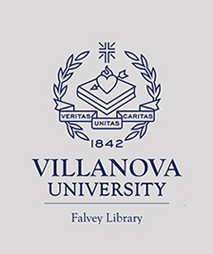Complex-Information Ethics Theory
##plugins.themes.bihistory.article.main##
Abstract
If ethics is of any interest to big historians, it might be primarily for analyzing the “ought to haves” and the “ought not to haves” of prior large scale human actions, e.g., does an agriculture-based lifestyle cause more harms to humans overall as compared with a hunter-gatherer lifestyle? However, big historians are also often concerned about the future events of Earth that can be influenced by humans, such as climate change, mass extinctions, and the predicted technological singularity. Because those concerns encompass both human and non-human complex systems such as the biosphere and possible future advanced artificial intelligence, big history requires an ethical framework that addresses anthropocentric as well as non-anthropocentric concerns and perspectives.
Complex-information (C-I) ethics is a new information-centric theory described in this paper. Several other information-centric variants have already been proposed. However, C-I theory seeks to enhance, broaden, and deepen this genre of ethical theory with the general directive that moral agents should perpetuate and enhance net positive deep informational artifacts and processes. Before introducing this directive, however, we will first explore and define its underpinnings in the disciplines of thermodynamics, information theory, and complexity science. By better understanding how entropy and its Janus-like counterpart, information, are relevant to C-I’s ethical directive, we can also better appreciate why complex systems, as defined by their key characteristics, have intrinsic ethical value. We will also examine why artifacts and processes with deep semantic value can have instrumental ethical value to agents. Although many, if not most, complex systems are ethically and pragmatically worthy of being perpetuated and enhanced, some are not because of their negative effects on the broader complexity landscape. A couple of important caveats to C-I’s directive are also described.
By bringing the findings and analytical tools of key physical sciences to bear, C-I theory opens new avenues for exploring what we as moral agents ought and ought not to have done in the past, as well as what we ought or ought not to do presently and in the future. This class of ethical theories also delineates some of the primary bridges from the natural and physical sciences to the more subjective realm of philosophical ethics.
##plugins.themes.bighistory.article.details##
- Authors retain copyright and grant the journal right of first publication with the work simultaneously licensed under a Creative Commons Attribution License that allows others to share the work with an acknowledgement of the work's authorship and initial publication in this journal.
- Authors are able to enter into separate, additional contractual arrangements for the non-exclusive distribution of the journal's published version of the work (e.g., post it to an institutional repository or publish it in a book), with an acknowledgement of its initial publication in this journal.
- Authors are permitted and encouraged to post their work online (e.g., in institutional repositories or on their website) prior to and during the submission process, as it can lead to productive exchanges, as well as earlier and greater citation of published work (See The Effect of Open Access).



